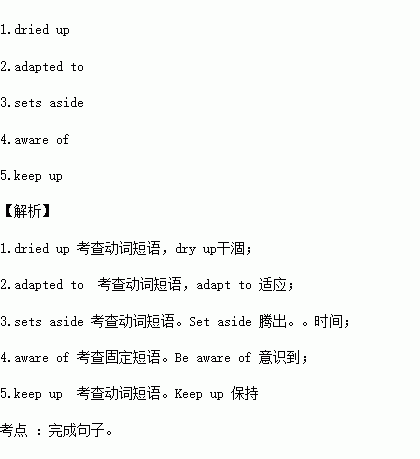题目内容
补全句子:根据所给汉语,补全下列句子,每空仅限一词。
1.受3月那场地震的影响,七眼泉水干涸了。
Affected by the earthquake happening in March, seven springs ________ ________ .
2.我的儿子适应了在一个安静单独的地方学习。
My son has ________ ________ studying in a quiet and single place .
3.她每天腾出一些时间锻炼身体。
She ________ _______ a few minutes every day to do some exercise.
4.敌人的突然攻击使他们更加意识到周围的危险。
The enemy’s sudden attack made them more _______ _______ the danger around them.
5.尽管天气很冷,但他们在唱歌跳舞,以保持高涨的情绪。
They were singing and dancing to __________ _________their high spirits though it was very cold.
练习册系列答案
相关题目

